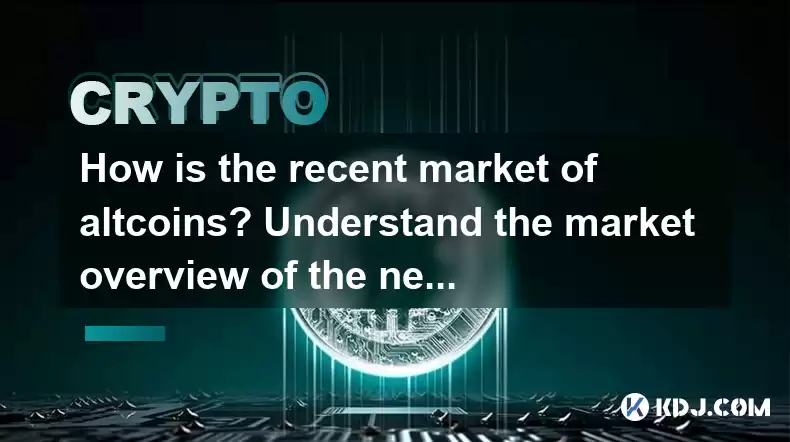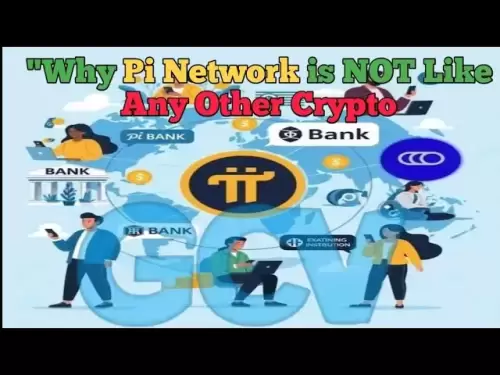-
 Bitcoin
Bitcoin $118300
1.01% -
 Ethereum
Ethereum $4215
0.69% -
 XRP
XRP $3.198
-3.83% -
 Tether USDt
Tether USDt $1.000
-0.01% -
 BNB
BNB $803.4
-0.53% -
 Solana
Solana $180.3
-0.67% -
 USDC
USDC $0.9998
-0.01% -
 Dogecoin
Dogecoin $0.2334
-1.49% -
 TRON
TRON $0.3394
0.86% -
 Cardano
Cardano $0.7980
-1.45% -
 Chainlink
Chainlink $22.19
6.65% -
 Hyperliquid
Hyperliquid $43.41
0.13% -
 Stellar
Stellar $0.4407
-3.13% -
 Sui
Sui $3.843
-2.24% -
 Bitcoin Cash
Bitcoin Cash $564.7
-3.74% -
 Hedera
Hedera $0.2588
-3.41% -
 Ethena USDe
Ethena USDe $1.001
0.00% -
 Avalanche
Avalanche $23.64
-3.37% -
 Litecoin
Litecoin $120.0
-4.01% -
 Toncoin
Toncoin $3.342
-1.11% -
 UNUS SED LEO
UNUS SED LEO $9.038
0.60% -
 Shiba Inu
Shiba Inu $0.00001347
-0.81% -
 Uniswap
Uniswap $10.69
-4.58% -
 Polkadot
Polkadot $4.034
-1.30% -
 Dai
Dai $1.000
0.01% -
 Bitget Token
Bitget Token $4.472
-1.52% -
 Cronos
Cronos $0.1571
-3.04% -
 Pepe
Pepe $0.00001207
-2.21% -
 Monero
Monero $273.8
-3.19% -
 Ethena
Ethena $0.7520
2.75%
How is the recent market of altcoins? Understand the market overview of the new version of altcoins in one article
The altcoin market offers an array of opportunities, with promising altcoins such as Avalanche, Polygon, and Cardano showcasing strong use cases and potential for growth.
Feb 06, 2025 at 06:25 am

Key Points
- Market Overview of Altcoins
- Types of Altcoins
- Factors Affecting Altcoin Prices
- Recent Trends in Altcoin Market
- Leading Altcoins by Market Capitalization
- Promising Altcoins
- FAQs
Market Overview of Altcoins
Altcoins, short for alternative cryptocurrencies, have witnessed a surge in popularity and market capitalization over the last few years. They offer various features and use cases that set them apart from Bitcoin and Ethereum, the dominant cryptocurrencies. Currently, there are over 10,000 altcoins listed on various cryptocurrency exchanges.
The altcoin market is highly volatile and speculative, with prices fluctuating rapidly based on news, market sentiment, and technological advancements. They can offer potential returns but also carry a higher risk compared to established cryptocurrencies.
Types of Altcoins
Altcoins are diverse and can be categorized based on their use cases:
- Stablecoins: Pegged to a real-world asset (e.g., USD) to maintain stability and reduce volatility.
- Privacy Coins: Focus on enhancing transaction privacy and anonymity (e.g., Monero, Zcash).
- Utility Tokens: Used to access specific services or products within a blockchain ecosystem (e.g., NFTs, DeFi platforms).
- Governance Tokens: Represent ownership in a blockchain project and allow holders to participate in governance decisions.
- Meme Coins: Created as a joke or social experiment without a specific use case (e.g., Dogecoin, Shiba Inu).
Factors Affecting Altcoin Prices
Various factors influence altcoin prices, including:
- Market Sentiment: Positive or negative sentiment towards cryptocurrencies in general can impact altcoin prices.
- News and Events: Developments and announcements related to specific altcoins can have a significant impact on their prices.
- Technical Analysis: Traders use historical price data and patterns to predict future movements and make trading decisions.
- Supply and Demand: The availability of altcoins in the market and the demand from investors affect their prices.
- Speculation: Altcoins can be highly speculative, and their prices can be driven by hype and fear of missing out (FOMO).
Recent Trends in Altcoin Market
The altcoin market has experienced significant growth in recent years, with new altcoins continuously emerging and gaining popularity. Some notable trends include:
- Rise of Stablecoins: Stablecoins have gained traction due to their stability and ease of use for financial transactions.
- Increasing DeFi Adoption: Altcoins used in DeFi platforms are seeing increased demand as decentralized finance gains popularity.
- Emergence of Metaverse Platforms: Metaverse-related altcoins are gaining attention as the virtual world and blockchain integration becomes prominent.
- Government Regulations: Regulatory frameworks for altcoins are evolving, which can impact their market dynamics.
Leading Altcoins by Market Capitalization
- Ethereum (ETH): Second-largest cryptocurrency by market cap, known for its smart contract platform and DeFi ecosystem.
- Binance Coin (BNB): Native token of the Binance exchange, used for trading fees, staking, and access to DeFi services.
- USD Coin (USDC): Stablecoin pegged 1:1 to the US dollar, widely used for stable value storage and transactions.
- Tether (USDT): Similar to USDC, another stablecoin with a large market share.
- Solana (SOL): High-speed blockchain known for its fast transaction speeds and low fees.
Promising Altcoins
- Avalanche (AVAX): Similar to Solana, a high-speed blockchain with a focus on scalability and developer tools.
- Polygon (MATIC): Layer-two scaling solution for Ethereum, offering reduced fees and faster transaction speeds.
- Uniswap (UNI): Decentralized exchange platform for automated trading of Ethereum-based tokens.
- Cardano (ADA): Proof-of-stake blockchain known for its focus on research and scalability.
- Cosmos (ATOM): Interoperability blockchain that enables different blockchains to communicate with each other.
FAQs
- What is the future of altcoins? The future of altcoins depends on numerous factors, including market trends, technological advancements, and regulatory changes. Altcoins that address real-world problems, have strong use cases, and benefit from a dedicated developer community have the potential to perform well.
- How to research altcoins? Research altcoins thoroughly before investing. Consider factors such as the project's team, technology, use case, market adoption, and any available research reports or analysis.
- What are the risks associated with investing in altcoins? Altcoins are highly volatile, and investing in them carries a high risk of losing money. Always invest within your risk tolerance and be aware of the potential downside.
Disclaimer:info@kdj.com
The information provided is not trading advice. kdj.com does not assume any responsibility for any investments made based on the information provided in this article. Cryptocurrencies are highly volatile and it is highly recommended that you invest with caution after thorough research!
If you believe that the content used on this website infringes your copyright, please contact us immediately (info@kdj.com) and we will delete it promptly.
- Cold Wallet's Hot Streak: Acquisition, User Growth, and How it Stacks Up Against Ethereum & XRP
- 2025-08-10 20:30:16
- Bitcoin, Cloud Mining, and Crypto Earnings: What's Hot in 2025?
- 2025-08-10 20:50:12
- Presale Cryptos Face-Off: BlockDAG, TOKEN6900, and the Hunt for the Next Big Thing
- 2025-08-10 20:55:12
- DeFi, Meme Coins, and 2025: Navigating the Crypto Landscape
- 2025-08-10 20:30:16
- Cardano, Returns, and Trade Deals: A New Yorker's Take
- 2025-08-10 18:50:16
- Dogwifhat's Comeback: Solana Meme Coin Mania and Beyond!
- 2025-08-10 18:30:15
Related knowledge

What is Ethereum’s Slashing mechanism and how to punish malicious behavior?
Feb 20,2025 at 03:08am
Key PointsOverview of slashingDifferent types of slashing in EthereumIncentives and consequences of slashingIdentifying and reporting slashed validato...

What is the verifier node of Ethereum and how to become a verifier?
Feb 19,2025 at 06:00pm
The Verifier Node of Ethereum: A Comprehensive GuideKey Points:What is a Verifier Node?How to Become a Verifier NodeResponsibilities and Rewards of a ...

What is Ethereum’s staking, and how to participate and earn money?
Feb 19,2025 at 04:37pm
Key Points:Understanding Ethereum's Staking MechanismSteps to Participate in StakingBenefits and Rewards of StakingSecurity and Risk ConsiderationsTec...

What is Ethereum’s DAO (Decentralized Autonomous Organization) and how does it work?
Feb 20,2025 at 03:12am
Key PointsDefinition and Structure of a DAOGovernance and Decision-Making in DAOsBenefits and Use Cases of DAOsChallenges and Limitations of DAOsWhat ...

What is Ethereum's multi-signature wallet and how to improve security?
Feb 20,2025 at 02:18pm
Key Points:Understanding the Concept of a Multi-Signature WalletBenefits and Drawbacks of Multisig WalletsRequirements for Setting Up a Multisig Walle...

What is Ethereum's oracle and how to provide data for smart contracts?
Feb 21,2025 at 01:30am
Key Points:Understanding the concept of oracles in EthereumExploring different types of oraclesDetailed guide on how to provide data for smart contrac...

What is Ethereum’s Slashing mechanism and how to punish malicious behavior?
Feb 20,2025 at 03:08am
Key PointsOverview of slashingDifferent types of slashing in EthereumIncentives and consequences of slashingIdentifying and reporting slashed validato...

What is the verifier node of Ethereum and how to become a verifier?
Feb 19,2025 at 06:00pm
The Verifier Node of Ethereum: A Comprehensive GuideKey Points:What is a Verifier Node?How to Become a Verifier NodeResponsibilities and Rewards of a ...

What is Ethereum’s staking, and how to participate and earn money?
Feb 19,2025 at 04:37pm
Key Points:Understanding Ethereum's Staking MechanismSteps to Participate in StakingBenefits and Rewards of StakingSecurity and Risk ConsiderationsTec...

What is Ethereum’s DAO (Decentralized Autonomous Organization) and how does it work?
Feb 20,2025 at 03:12am
Key PointsDefinition and Structure of a DAOGovernance and Decision-Making in DAOsBenefits and Use Cases of DAOsChallenges and Limitations of DAOsWhat ...

What is Ethereum's multi-signature wallet and how to improve security?
Feb 20,2025 at 02:18pm
Key Points:Understanding the Concept of a Multi-Signature WalletBenefits and Drawbacks of Multisig WalletsRequirements for Setting Up a Multisig Walle...

What is Ethereum's oracle and how to provide data for smart contracts?
Feb 21,2025 at 01:30am
Key Points:Understanding the concept of oracles in EthereumExploring different types of oraclesDetailed guide on how to provide data for smart contrac...
See all articles

























































































